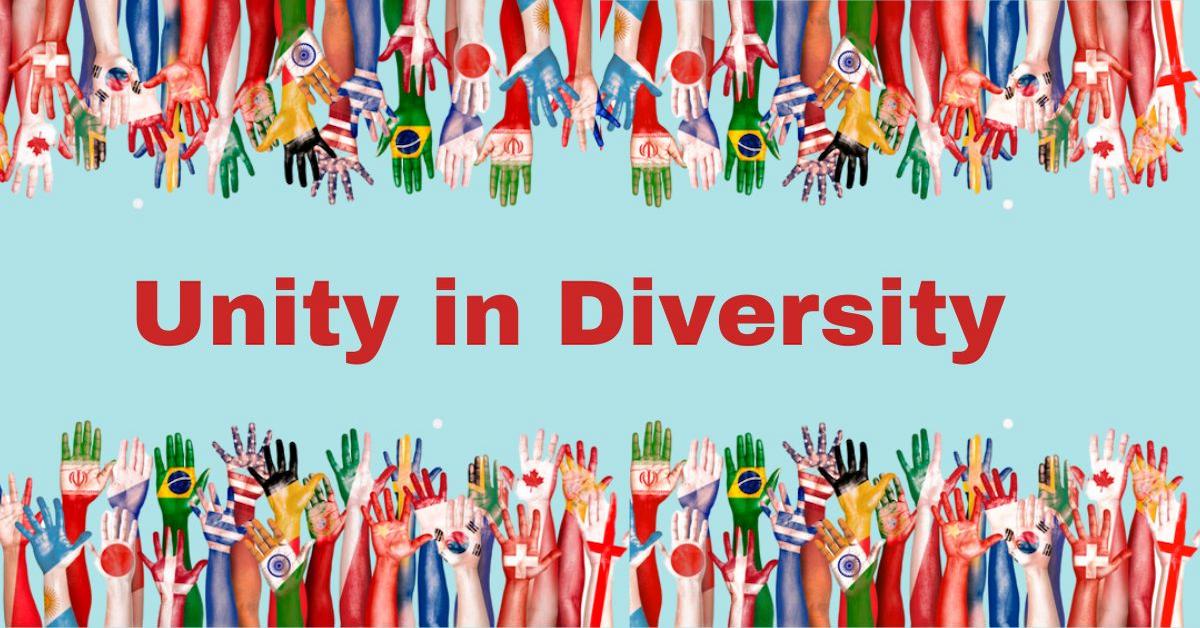Unity in diversity is a profound and transformative principle at the heart of Bahá’í teachings. It encapsulates the idea that humanity, despite its myriad differences in culture, ethnicity, and belief systems, can coexist harmoniously and work collaboratively towards a common purpose. This concept serves as both a lofty ideal and a tangible goal, urging individuals and communities to foster inclusivity and understanding amidst diversities. To comprehend how to bring this vision into fruition requires not merely philosophical contemplation but actionable steps grounded in the teachings of Bahá’u’lláh, the founder of the Bahá’í Faith.
1. Understanding the Essence of Unity
Unity is often misconstrued as mere tolerance or coexistence. In the Bahá’í context, however, it is an active and dynamic process. The metaphor of a kaleidoscope aptly illustrates this—it consists of various shapes and colors that, when combined, create a breathtaking mosaic. Each individual or group represents a unique piece, contributing vibrancy to the whole. Thus, the essence of unity transcends mere acceptance, evolving into a celebration of diversity where each element enhances the collective beauty.
2. Embracing Diversity as a Gift
Diversity should be perceived not as an obstacle but as an asset—an invaluable resource that enriches human experience. The Bahá’í teachings advocate for the recognition of different cultural heritages and perspectives. Just as a garden is most breathtaking when it comprises an assortment of flowers, humanity flourishes when diverse narratives and traditions are embraced. This attitude of reverence toward diversity invites introspection and challenges individuals to navigate the complex tapestry of human experiences with an open heart and mind.
3. The Power of Education and Knowledge
Education plays a pivotal role in fostering understanding and appreciation for diversity. The Bahá’í teachings emphasize the importance of universal education as a means to eliminate prejudice and misconceptions. Knowledge acts like a lighthouse, illuminating the vast ocean of diversity, guiding individuals through seemingly turbulent waters. When people are educated about each other’s cultures, histories, and values, empathy blossoms. This is essential for building bridges, as understanding cultivates respect, and respect begets unity.
4. Promoting Equality Among All
Equality is another cornerstone of Bahá’í teachings, asserting that all humans are essentially equal regardless of race, gender, or social standing. This principle encourages a removal of barriers, allowing every voice to resonate in the collective discourse. In the same way that musicians in an orchestra contribute to a harmonious symphony, individuals across diverse backgrounds must be afforded equal opportunities to participate. Without equality, the tapestry of humanity frays, risking the integrity of the very harmony that unity seeks to create.
5. Engaging in Constructive Dialogue
Constructive dialogue serves as a fundamental mechanism through which unity in diversity can be realized. The Bahá’í approach to discourse advocates for open, respectful conversations that prioritize listening over speaking. This aligns with the image of diverse threads weaving seamlessly into a fabric—each thread maintains its unique characteristics while contributing to a cohesive whole. Such dialogues challenge preconceived notions and foster an environment where individuals can express differing perspectives without fear of judgment or reprisal.
6. Cultivating Spiritual Insights
A spiritual dimension is integral to understanding unity in diversity. The Bahá’í teachings encourage individuals to foster a spiritual connection that transcends societal divisions. This can be likened to a river that nourishes the land, providing sustenance to diverse flora. Spiritual insights help cultivate compassion, forgiveness, and love—qualities essential for fostering a sense of unity. As individuals deepen their spiritual lives, they begin to recognize the interconnectedness of all humanity, perceiving themselves not as isolated entities but as participants in a greater whole.
7. The Role of Service to Humanity
Service is a noble expression of commitment to unity in diversity. Engaging in acts of service allows individuals to transcend their own needs and concerns, fostering a sense of interconnectedness with others. The Bahá’í teachings advocate for a life characterized by altruism and selflessness—a metaphorical ladder to unity where each step taken in service elevates both the individual and the community. By serving others, one can break down barriers and cultivate a shared sense of purpose, forging connections that bridge divides.
8. Collective Action for Global Change
Collective action emerges as an essential vehicle for manifesting unity in diversity at the societal level. The Bahá’í teachings stress the importance of working collaboratively toward social justice, peace, and community development. This is akin to a choir singing in unison, where each voice contributes to a powerful, harmonious outcome. Through cooperative initiatives, such as interfaith dialogues, community service projects, and global campaigns for human rights, individuals can tangibly advance the principles of unity and equality.
9. Conclusion: A Vision for the Future
In conclusion, the vision of unity in diversity is not a distant dream but an attainable reality that can be realized through the collective efforts of individuals and communities inspired by Bahá’í teachings. It calls for an active engagement with the world around us, requiring humility, openness, and a commitment to fostering inclusivity. As the world faces increasing fragmentation and polarization, the principles of unity, embraced with sincerity and dedication, provide a beacon of hope—a guiding star toward a future where humanity thrives together, enriched by its diversity.
